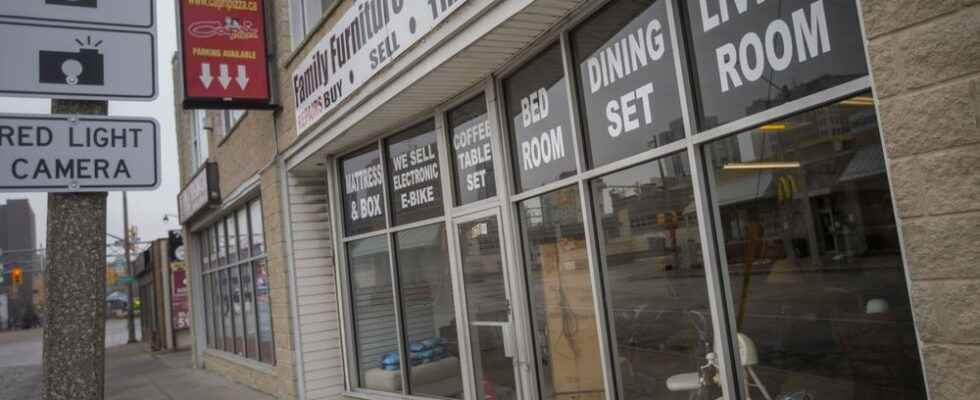Content item
Some political decisions are more revealing than others.
Advertisement
This advertisement has not loaded yet, but your article continues below.
Content item
They show who is open to ideas, seeks information, listens, understands the broader perspective and is willing to venture outside their comfort zone. And they show who represents everyone, not just the prominent or the people most likely to vote, but the vulnerable and invisible.
City council’s decision to support the proposed drug consumption and treatment clinic on Goyeau Street, offering a safe place for addicts to use drugs and access addiction treatment, was one of those decisions.
count. Jim Morrison delivered one of the finest performances I’ve seen in a long time.
He worried about all the myths that people who oppose these sites usually list — loitering, crime, discarded needles, plummeting property values, ruined businesses.
So he read about clinics in other cities comparable to Windsor, like London, Kitchener and Cambridge. An average of 15 people use the clinic in Kitchener every day. There were 640 referrals for addiction treatment, mental health care and social services. And out of 188 overdoses, only one required a 911 call.
He also drove 297 kilometers to Guelph, unannounced, to see its consumption and treatment clinic. It was so unobtrusive that he almost walked by it, he said. He spoke to the staff. He toured the clinic.
And he knew, “with complete certainty,” this is what we need in Windsor.
Council makes a lot of big decisions, including a budget of almost a billion dollars.
“But what could be more important than saving people’s lives?” Morrison asked.
Advertisement
This advertisement has not loaded yet, but your article continues below.
Content item
“Do we just let people die, often alone, with no support, or do we offer a safer environment that will save lives, then offer supports that change their lives for the better?”
It’s “the right thing to do,” he concluded.
count. Kieran McKenzie didn’t mean words, either.
“It would be a massive failure for council if we decided to walk away from this,” he said. “We know what’s happening in our community… It needs our attention now.”
What’s happening in our community is 358 opioid-related emergency department visits and 68 deaths in 2020. Last year, paramedics responded to over 600 overdose-related calls. It is an epidemic.
A report by the Ontario Drug Policy Research Network on Tuesday shows that people who died of overdoses in the first wave of the pandemic frequently sought help in the month or week before they died. It called for accessible treatment in multiple settings, including consumption and treatment clinics.
Those who voted against the proposal here — Mayor Drew Dilkens and councilors Fred Francis, Jo-Anne Gignac, Ed Sleiman and Jeewen Gill — argued that it isn’t the right model or it isn’t the right location, that it would hurt nearby businesses. Even though the Downtown Windsor Business Improvement Association and residents support it.
It sounded like the mayor and these councilors just couldn’t get past the myths.
Sleiman is a member of the board of health who supported the proposal — until he voted against it on council.
Advertisement
This advertisement has not loaded yet, but your article continues below.
Content item
There will never be a perfect site. This proposal has been five years in the making. It has been painstaking and exhaustive. This is what all the health care and social services experts, the people who deal with overdoses on the front line, recommend. They provided a comprehensive report. They spent hours answering councilors’ questions.
As McKenzie said, “This proposal comes after an incredible amount of work and by people who know much more about these issues than any one of us who sits at this table.”
For anyone who still thought this is a moral issue, that it encourages illegal drug use, that there should be zero tolerance, Coun. Fabio Costante sets them straight.
“This is antiquated thinking,” he said. “It’s thinking that’s not based on evidence and assumes that addiction is a choice, that trauma is a choice.”
The councilor with the most on the line was Rino Bortolin, who represents downtown. Most politicians would fight against this clinic in their ward. Bortolin fought for it.
“Whether we like it or not … there are realities,” said Bortolin, who spends his ward funds on boxes for used needles.
This is why Windsor finally, belatedly, allowed police to carry Naloxone. Because we have a problem, and we need to do something about it.
In the end, as Bortolin said, the issue wasn’t really about the model or the location. It was about dispelling the misperceptions about the people who will use the clinic and what it will do for them. If this was a clinic for people with cancer, no one would question it. But people suffering addiction—we put them through the wringer.
We say we need to revitalize downtown. Addressing the opioid epidemic is part of that. We say we want safe neighborhoods. Addressing the opioid epidemic is part of that, too.
These clinics aren’t new. There are 16 in Ontario. Some have been operating for several years. There is a mountain of evidence supporting them. Some municipal councils voted unanimously to open clinics in their communities. But not Windsor’s council. The proposal scraped by with a 6-5 vote here.
At least we’re getting a clinic. But I expected better.
